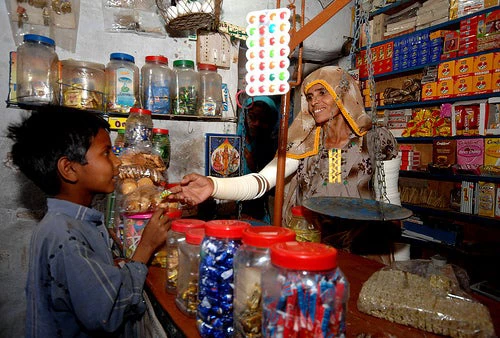When asked about what she thought was key in advancing women’s rights, Cherie Blair, lawyer and founder of the Cherie Blair Foundation for Women, replied, “I believe that actually financial independence is very important so we need a financial framework that recognizes women as equals, that enables them to have access to finance, access to capital to have their own financial independence.”
And this brings to the table another question: What are the hurdles that women face when trying to access capital?
For many women entrepreneurs across the world, getting a loan to start or expand their business can prove challenging. This is particularly true in the developing world where banks often require borrowers to pledge their home or land as collateral. Women, who tend to lack such assets, are placed at a disadvantage. Legal restrictions on women’s property rights can exacerbate the problem.
The first hurdle: meeting the bank’s conditions
Mapping the Legal Gender Gap in Using Property and Building Credit is the latest note published by the World Bank Group’s Women, Business and the Law project. Through this analysis, we explore how women’s access to capital can improve when their property rights are recognized.
This note suggests that legal restrictions on women’s capacity to own, sell, acquire and use property affect their ability to meet banks’ collateral requirements and to access capital. These restrictions can impede women from getting the financial resources necessary to start and run their businesses.
Our analysis also reveals that women borrow less from financial institutions in economies with a legal gender gap in property rights. On average, there are 9 percentage points fewer women with loans in economies where women do not have the same property rights as men. 
More Women Have Loans in Economies that Grant Women the Same Property Rights as Men
Sources: Women, Business and the Law 2012 and Global Financial Inclusion (Global Findex) Database. Note: The figure includes data on 132 economies and presents an average value.
So where are property rights different for men and women?
Data from Women, Business and the Law’s Using Property indicator show that none of the 141 economies covered differentiate between the property ownership and management rights of unmarried women and unmarried men. However, we find that some economies do have different property ownership and management rights for married women and married men.
Our research reveals that all economies in high-income OECD, Eastern Europe and Central Asia, Middle East and North Africa and South Asia grant equal rights to spouses with regard to property ownership. In East Asia and the Pacific all economies do so, except the Philippines, where the husband‘s decision legally prevails in cases of disagreement between the spouses over the use of marital property.
In Latin America and the Caribbean, we find that spouses have equal property rights in all economies but Chile and Ecuador. In Chile, the husband legally manages marital property—including any property generated in the marriage—and any property brought into the marriage by his wife, limiting her ability to pledge marital property as collateral. In Ecuador, as in the Philippines, the husband’s decision will prevail in the case of a disagreement between the spouses over the use of marital property.
In Sub- Saharan Africa, our findings show that four economies give husbands sole administrative control over marital property: Cameroon, Côte d’Ivoire, the Democratic Republic of Congo, and the Republic of Congo. In these economies, husbands solely manage marital property, and financial institutions require the husband’s approval to use this property as collateral.
Drawing from Women, Business and the Law’s Building Credit indicator, our note also explores how the regulations governing credit reporting and secured transaction systems can help female entrepreneurs access the financing they need.
To learn more about Mapping the Legal Gender Gap in Using Property and Building Credit, visit us at wbl.worldbank.org, or follow us on Facebook.



Join the Conversation